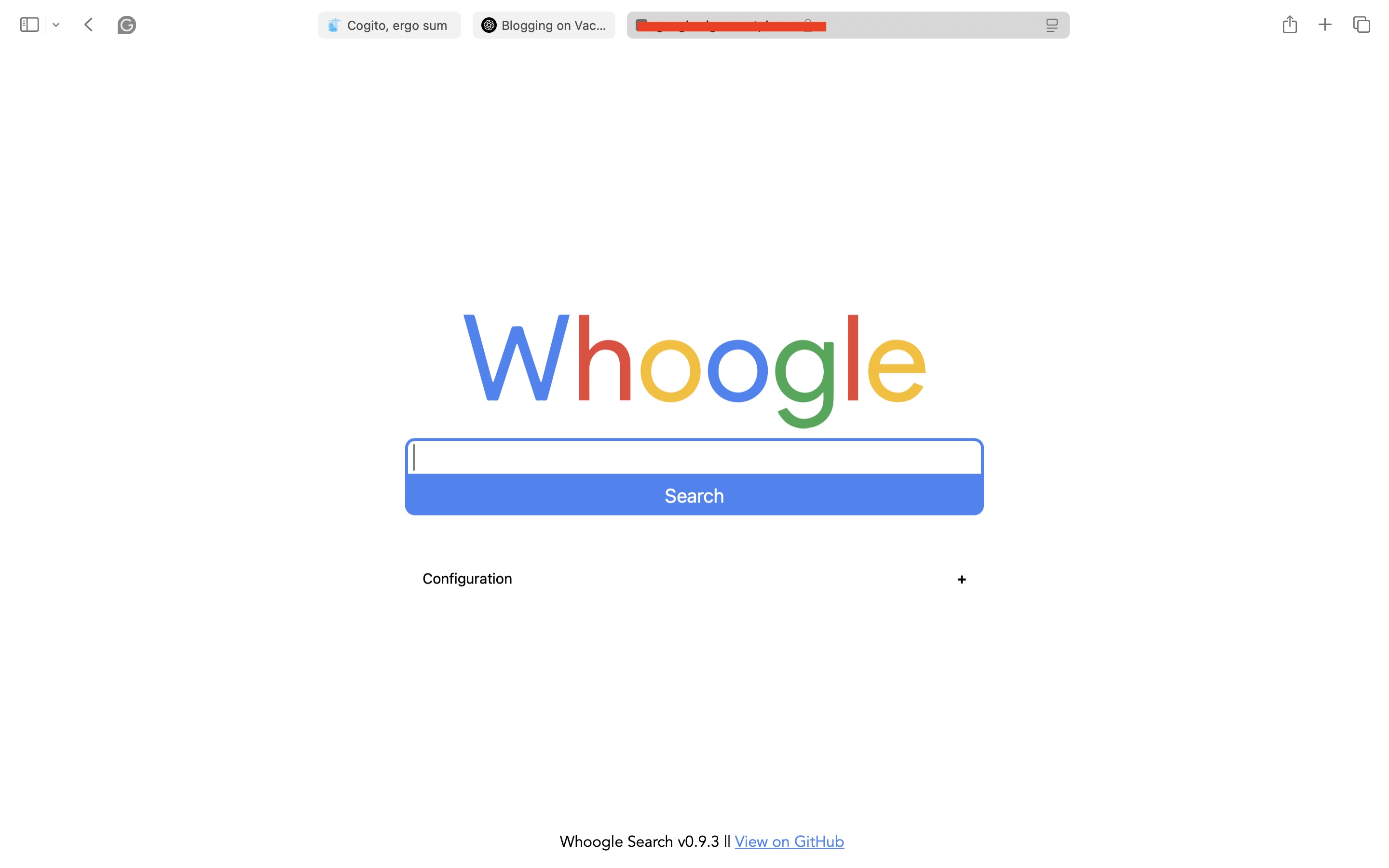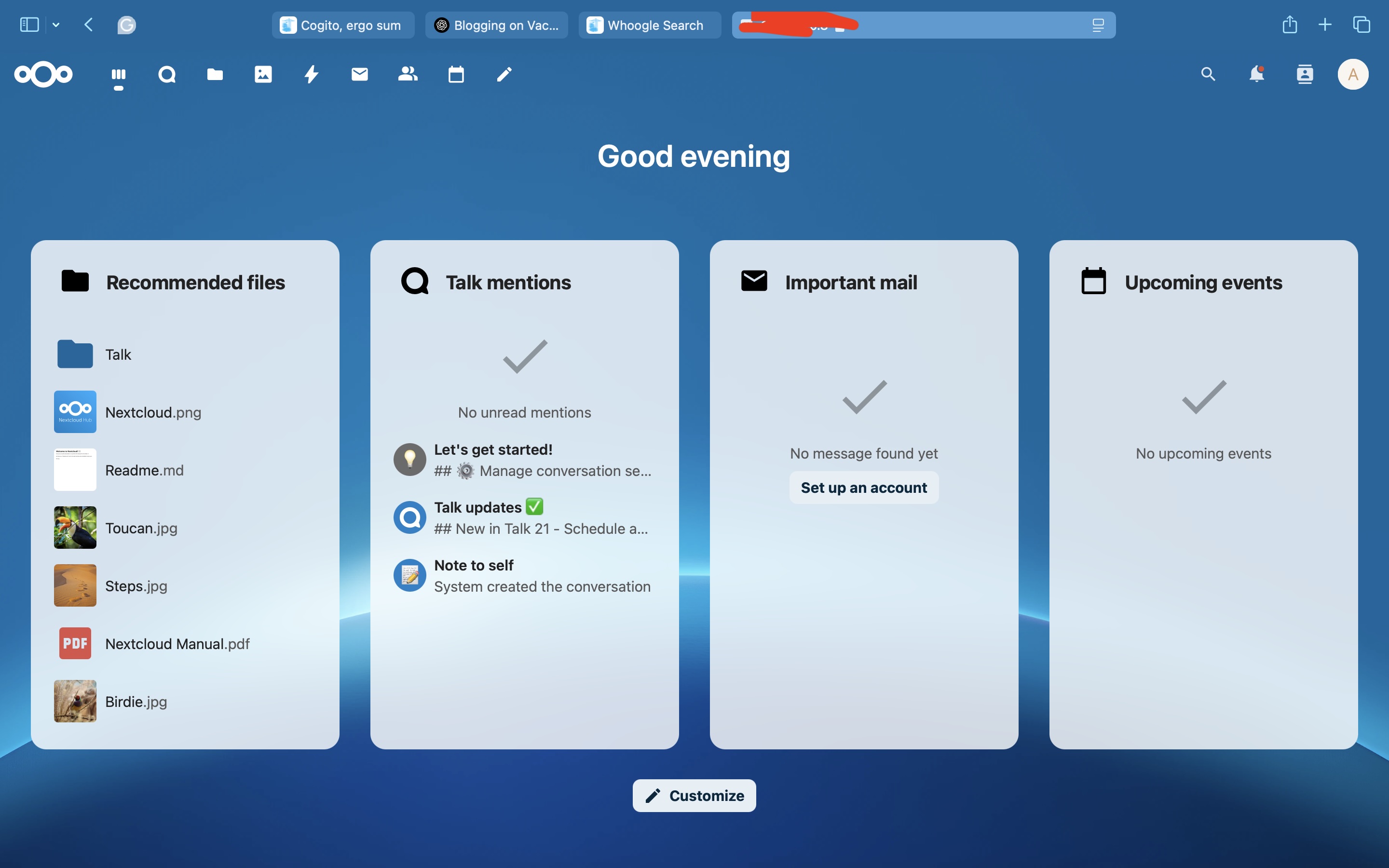Recently I became very interested in self-hosting popular cloud services such as drive, notes, media-servers (like netflix), and even a google like search engine. This fascination with self-hosting is not new to me as this very blog is self-hosted on a RaspberryPi. You can check my blog setup on colophon page. However, hearing so much criticism of Google like companies–selling data and targeted advertisments–from my fellow Indie bloggers motivated me further to try self-hosting. Since I have all the ingredients, it was a matter of time before I tried self-hosting.
For the past couple of weeks, I have been experimenting with several of these services including NextCloud as a replacement of Gdrive, pigallery2 for google-photos, Snippet-box as a technical note taking app, and Whoogle as a replacement of advertisement master, Google. I have also set up my own self-hosted adblocker, Pi-hole, that has reduced the amount of ads I see on other websites. At this point, I am very happy with this setup and I plan to experiment further by setting up a media server so that I can watch my favorite shows and listen to ad-free music from my own system.


I am accessing these services using a WireGuard VPN which allows me to connect to my home wifi from anywhere in the world without exposing any ports and local IP. That means no one else can sneak into my network and use these services. However my blog and Whoogle are exposed to outside network and people can use them but I tried to keep them hidden behind a Cloudflare tunnel.
This whole setup might sound very exciting but I would like to remind you that it is not free from vulnerabilities. It’s a bit sad to learn that internet is full of data-thieves and hackers–in the form of bots and crawlers made by humans–which will not miss a single chance to hack your system. So I would not encourage anyone to try self-hosting without any guidance. I am also not an expert in network systems but I am following the advices of experts on internet as well as from real life.